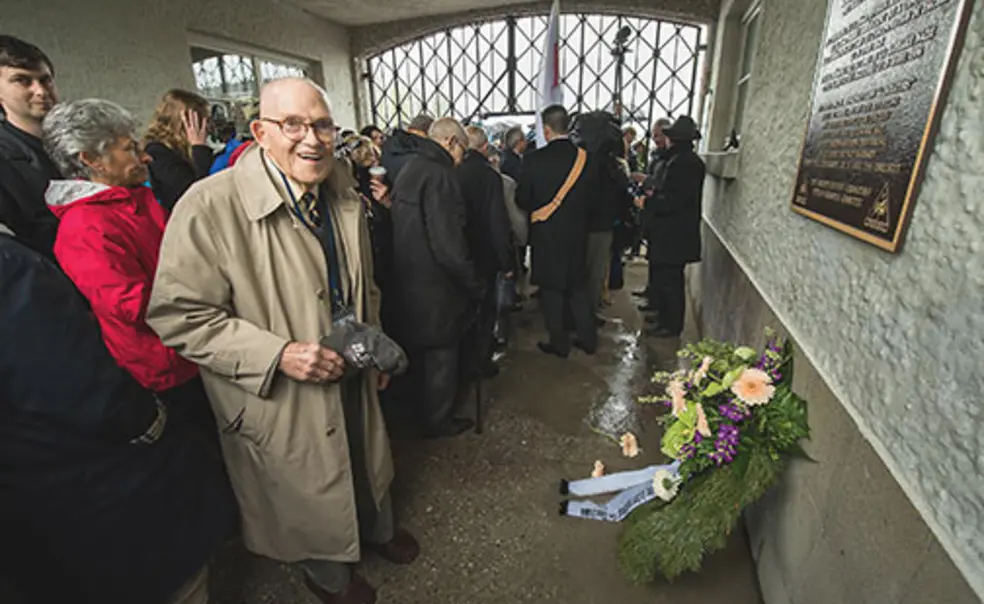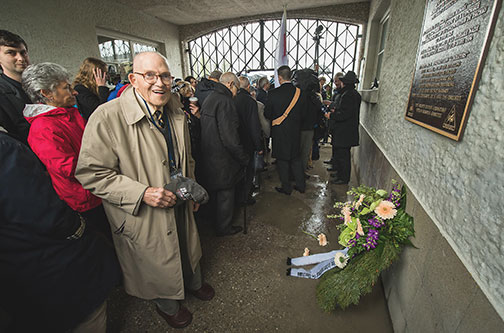Alan Lukens ’46: Bearing Witness
A return to Dachau commemorates the suffering of its prisoners and the joy of liberation
On April 29, 1945, Alan Lukens ’46 and members of the U.S. Army’s 20th Armored Division were marching through southern Germany toward Munich when they came upon a terrible sight: the gates of the Dachau concentration camp. The prisoners inside, who had been secretly listening to BBC radio broadcasts, knew that the Americans were close by. As 21-year-old Lukens and fellow soldiers broke through the camp’s barbed-wire fence with their tanks (the 20th was one of several Army divisions to liberate the camp), hundreds of emaciated inmates ran to embrace them, some carrying a hand-sewn American flag they had hidden for the occasion.
Lukens, who now is 91, vividly remembers how moved he was by the joy with which the survivors greeted him. “They had experienced these unspeakable hardships, but grew close to each other through the struggle and hadn’t lost faith that they’d be rescued,” he recalls.
On May 3, Lukens returned to Dachau to commemorate the 70th anniversary of the camp’s liberation. At a ceremony featuring German Chancellor Angela Merkel and several dozen survivors, Lukens spoke on behalf of the liberators, reflecting on the Dachau Memorial’s motto, written in French, German, and Russian: “Never Again.” He told the audience that Dachau has gone “from a symbol of infamy to one of hope for the future.”
Lukens’ experience in World War II inspired him to pursue a career in the Foreign Service; he served as the U.S. ambassador to the Republic of Congo from 1984 to 1987. This year’s Dachau commemoration could be the last attended by Lukens and the camp’s survivors, who are in their 80s and 90s. But Lukens says he will return for as long as he can to keep memories of the horrors of Dachau — and the joy of liberation — alive.













No responses yet